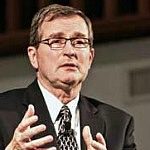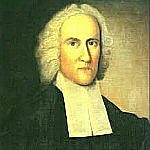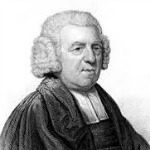Quotes about Salvation-Assurance-Means
To be assured of our salvation is no arrogant stoutness. It is faith. It is devotion. It is not presumption. It is God’s promise.
The primary ground of assurance is rooted in the promises of God, but those promises must become increasingly real to the believer through the subjective evidences of grace and the internal witness of the Holy Spirit.
The only safe evidence that we are in Christ is a holy life. John said everyone who has within him the hope of eternal life purifies himself just as Christ is pure (1 John 3:3). Paul said, “Those who are led by the Spirit of God are sons of God” (Romans 8:14). If we know nothing of holiness, we may flatter ourselves that we are Christians but we do not have the Holy Spirit dwelling within us.
Copied from The Pursuit of Holiness by Jerry Bridges, © 1996, p. 38. Used by permission of NavPress – www.navpress.com. All rights reserved. Get this book!
Three means by which God assures us that we do have eternal life:
1. The promises of His Word.
2. The witness of the Spirit in our hearts.
3. The transforming work of the Spirit in our lives.
Copied from The Gospel for Real Life by Jerry Bridges, © 2002, p. 150. Used by permission of NavPress – www.navpress.com. All rights reserved. Get this book!
The assured Christian is more motion than notion, more work than word, more life than lip, more hand than tongue.
A Puritan Golden Treasury, compiled by I.D.E. Thomas, by permission of Banner of Truth, Carlisle, PA. 2000, p. 26
Assurance is the fruit that grows out of the root of faith.
A Puritan Golden Treasury, compiled by I.D.E. Thomas, by permission of Banner of Truth, Carlisle, PA. 2000, p. 21.
‘Tis not God’s design that men should obtain assurance in any other way, than by mortifying corruption, and increasing in grace, and obtaining the lively exercises of it. And although self-examination be a duty of great use and importance, and by no means to be neglected; yet it is not the principal means, by which the saints do get satisfaction of their good estate. Assurance is not to be obtained so much by self-examination, as by action.
Though true grace has various degrees, and there are some that are but babes in Christ, in whom the exercise of the inclination and will, towards divine and heavenly things, is comparatively weak; yet everyone that has the power of godliness in his heart, has his inclinations and heart exercised towards God and divine things, with such strength and vigor that these holy exercises do prevail in him above all carnal or natural affections, and are effectual to overcome them: for every true disciple of Christ "loves Him above father or mother, wife and children, brethren and sisters, houses and lands: yea, than his own life."
When we speak of assurance, we are speaking of that which we know because the evidence is clear. This is the heart of First John and the other passages dealing with this subject. The way to tell if you are a Christian is not to look at the sincerity of a decision, but to look at the change in the life. As far as I can tell, there is no teaching in the Word which says that you can be sure that you are a Christian by looking back at an historical conversion experience. “These things I have written to you who believe in the name of the Son of God, that you may know that you have eternal life…” (1 Jn. 5:13, emphasis mine). What things? Those tests which make up the content of the epistle. In other words, one’s assurance should be based on discernible factors which can be tested.
Childhood Conversion, Christian Communicators Worldwide, www.CCWtoday.org. Used by Permission.
So, how do you know you’re a Christian? First be sure that you understand the basics. Do you believe that Jesus is God? Do you believe that He came to the earth to deliver sinful people from the consequences and power of their sin? Do you believe that Christ lived a perfect life and then died on the cross to pay the penalty that you deserved to pay before a holy God? Do you believe that He was raised from the dead and has overcome the power of sin and death? And have you, to the best of your knowledge, placed your entire trust in Christ alone as your only way of salvation? Have you rejected the selfish life you have now come to despise? Then you have the basics and may well be a true believer.
Knowing You’re In, Christian Communicators Worldwide, www.CCWtoday.org. Used by Permission.
There is no mere doctrine of “the security” of the believer, as though God’s keeping of us took place irrespective of the lives we live. Indeed there is no such thing in the New Testament as a believer whose perseverance is so guaranteed that he can afford to ignore the warning notes which are sounded so frequently.
If one sees oneself as being saved without the obligation to be saving, then clearly one needs to grow in salvation. The evidence of salvation – that God’s grace has taken effect in one’s life – is to be found in one’s participation in bringing salvation to others.
Motion is the most perfect discoverer of life. He that can stir his limbs, is surely not dead. The feet of the soul are the affections. Hast thou not found in thyself a hate and detestation of that sin whereinto thou hast been miscarried? Hast thou not found in thyself a true grief of heart, for thy wretched indisposition to all good things? Without a true life of grace, these things could never have been.
A Puritan Golden Treasury, compiled by I.D.E. Thomas, by permission of Banner of Truth, Carlisle, PA. 2000, p. 25.
Proper Christian living should never be the fundamental grounds for assurance of salvation. Rather, assurance of salvation which should rest in the merit and sufficiency of the Savior and the believer’s new life in Christ, must be the fundamental basis for proper Christian living (Col. 3:1-4).
We need to draw our assurance from faith in the facts of Scripture and not from our works. Works or the biblical changes that occur in our lives as a result of the grace of God can confirm the reality of our life with God. We must be ever so careful, however, in making such subjective ground the basis of our assurance, for when a believer is out of fellowship he or she can have the appearance of an unbeliever especially if the condition lasts for any length of time.
The Bible teaches clearly that the evidence of God’s work in a life is the inevitable fruit of transformed behavior (1 John 3:10). Faith that does not result in righteous living is dead and cannot save (James 2:14-17). Professing Christians utterly lacking the fruit of true righteousness will find no biblical basis for assurance they are saved (1 John 2:4). Real salvation is not only justification. It cannot be isolated from regeneration, sanctification, and ultimately glorification. Salvation is an ongoing process as much as it is a past event. It is the work of God through which we are “conformed to the image of His Son” (Romans 8:29, cf. Romans 13:11). Genuine assurance comes from seeing the Holy Spirit’s transforming work in one’s life, not from clinging to the memory of some experience.
The Gospel According to Jesus, © John MacArthur, 1988, p. 23. Get this book!
The fruit/proofs of authentic/true Christianity: Love for God (Psm. 42:1ff; 73:25; Lk. 10:27; Rom. 8:7), repentance from sin (Psm. 32:5; Prov. 28:13; Rom. 7:14ff; 2 Cor. 7:10; 1 John 1: 8-10), genuine humility (Psm. 51:17; Mt. 5:1-12; Jas. 4:6,9ff), devotion to God’s glory (Psm. 105:3; 115:1; Isa. 43:7, 48:10ff.; Jer. 9:23,24; 1 Cor. 10:31), continual prayer (Lk. 18:1; Eph. 6:18ff.; Phil. 4:6ff.; 1 Tim. 2:1-4; Jas. 5:16-18), selfless love (1 Jn. 2:9ff, 3:14; 4:7ff.), separation from the world (1 Cor. 2:12; Jas. 4:4ff.; 1 Jn. 2:15-17, 5:5), spiritual growth (Luke 8:15; John 15:1-6; Eph. 4:12-16), obedient living (Mt. 7:21; Jn. 15:14ff.; Rom. 16:26; I Pet. 1:2, 22; 1 Jn. 2:3-5).
Evidences that neither prove nor disprove one’s faith: Visible morality (Mt. 19:16-21; 23:27), intellectual knowledge (Rom. 1:21; 2:17ff.), religious involvement (Mt. 25:1-10), active ministry (Mt. 7:21-24), conviction of sin (Ac. 24:25), assurance (Mt. 23), time of decision (Lk. 8:13,14).
Assurance grows by repeated conflict, by our repeated experimental proof of the Lord’s power and goodness to save; when we have been brought very low and helped, sorely wounded and healed, cast down and raised again, have given up all hope, and been suddenly snatched from danger, and placed in safety; and when these things have been repeated to us and in us a thousand times over, we begin to learn to trust simply to the Word and power of God, beyond and against appearances: and this trust, when habitual and strong, bears the name of assurance; for even assurance has degrees.
Praying a prayer is never offered in Scripture as a ground of assurance, nor is sincerity. Jesus tells us not to look at prayers and sincerity for assurance, but at our actions – the fruit of our lives (Matt. 7:15-27; John 15:8; 2 Pet. 1:5-12). The New Testament tells us to look at the holiness of our conduct, the love we have for others, and the soundness of our doctrine as the key indicators of our assurance (1 Thess. 3:12-13; 1 John 4:8; Gal. 1:6-9; 5:22-25; 1 Tim. 6:3-5) (Mark Dever and Paul Alexander).
Doing Responsible Evangelism, taken from The Deliberate Church, © 2005, Crossway Books, a division of Good News Publishers, Wheaton Illinois 60187, p. 52-53, www.crosswaybooks.org.
Not one for whom He died can possibly miss heaven.
One of the surest tests to apply to the professed conversion is the heart’s attitude towards sin. Where the principle of holiness has been planted, there will necessarily be a loathing of all that is unholy. If our hatred of evil be genuine, we are thankful when the Word reproves even the evil which we suspected not.
It is only in proportion as the Christian manifests the fruit of a genuine conversion that he is entitled to regard himself and be regarded by others as one of the called and elect of God. It is just in proportion as we add to our faith the other Christian graces that we have solid ground on which to rest in the assurance we belong to the family of Christ. It is not those who are governed by self-will, but “as many as are led by the Spirit of God, they are the sons of God” (Rom. 8:14).
It is clear that obedience is intimately related to assurance; if we do not live and practice righteousness we have no reason to think that we are “born of God.”
What Should We Think of the Carnal Christian? 1978, p. 18. By permission Banner of Truth, Carlisle, PA.
If the Holy Spirit is at work in our lives, if He is convicting us of sin, if He is giving us faith in Jesus Christ, if He is persuading us that the Bible is God’s Word, if He is enabling us to call God Father, if He is making us fruitful in ministry, if He is helping us grow in grace – if the Spirit is doing any of these things at all – then no matter how much we are struggling in the Christian life, we have God’s seal of our eternal salvation.
Let us note that our Lord does not name gifts or miracles or intellectual attainments as the evidence of discipleship, but love, the simple grace of love, a grace within reach of the poorest, lowliest believer, as the evidence of discipleship. If we have no love, we have no grace, no regeneration, no true Christianity!
Sin forsaken is one of the best evidences of sin forgiven.
Many appear to think that, once converted, they have little more to attend to, and that a state of salvation is a kind of easy chair, in which they may just sit still, lie back and be happy… Such persons lose sight of the many direct injunctions to increase, to grow, to abound more and more, to add to our faith, and the like; and in this little-doing condition, this sitting-still state of mind, I never marvel that they miss assurance.
A regeneration which a man can have, and yet live carelessly in sin or worldliness, is a regeneration invented by uninspired theologians, but never mentioned in Scripture… In a word, where there is no sanctification there is no regeneration, and where there is no holy life there is no new birth.
The Spirit is compared to the wind, and, like the wind, He cannot be seen by our bodily eyes. But just as we know there is a wind by the effect it produces on waves, and trees, and smoke, so we may know the Spirit is in a man by the effects He produces in the man’s conduct. It is nonsense to suppose that we have the Spirit, if we do not also “walk in the Spirit.” (Gal. 5:25). We may depend on it as a positive certainty, that where there is no holy living, there is no Holy Ghost.
Let it never be said that we cannot find out whether a Christian really loves Christ. It can be known; it may be discovered; the proofs are already to your hand. You have heard them this very day. Love to the Lord Jesus Christ is no hidden, secret, impalpable thing. It is like the light – it will be seen. It is like sound – it will be heard. It is like heat – it will be felt. Where it exists, it cannot be hid. Where it cannot be seen you may be sure there is none.
It is evident that our conversion is sound when we loathe and hate sin from the heart.
So if we are already declared perfectly holy in God’s eyes and our future is a place of perfect holiness and God’s goal for us is increasing holiness, it’s safe that the clearest sign that we are really saved will be the desire and ability to be more holy.
Consider those sharing the Gospel. Anyone who believes the validity of this message, has been transformed by this message, seeks to be obedient to God by declaring the message, loves people enough to proclaim this message and willingly receives persecution for sharing this message, shows that he or she has truly received “salvation” (see Philippians 1:28).
Your obedience is not the bedrock of your assurance. Given the remains of sin within us it can be profoundly difficult to give a clear measure of our own spiritual growth. In fact I have been known to argue that the better we get the worse we seem to ourselves. That is, as we grow in grace we grow in our capacity to see our own sin more deeply. Which the devil delights to use to discourage us. It is Christ’s obedience that secures for us our eternity.
Christ will be master of the heart, and sin must be mortified. If your life is unholy, then your heart is unchanged, and you are an unsaved person.The Savior will sanctify His people, renew them, give them a hatred of sin, and a love of holiness. The grace that does not make a man better than others is a worthless counterfeit. Christ saves His people, not IN their sins, but FROM their sins. Without holiness, no man shall see the Lord.
A pardoned sinner will hate the sins which cost the Savior’s blood.
Assurance comes not by inquisitive searching into the hidden and deep things of God, but by noticing within themselves, with spiritual joy and holy delight, the unmistakable fruits of election pointed out in God’s Word – such as a true faith in Christ, a childlike fear of God, a godly sorrow for their sins, a hunger and thirst for righteousness, and so on.
The Canons of Dort, The First Main Point of Doctrine: Divine Election and Reprobation. Article 12-The Assurance of Election.
Whenever God pardons sin, He subdues it. Micah 7:19. Then is the condemning power of sin taken away, when the commanding power of it is taken away. If a malefactor be in prison, how shall he know that his prince hath pardoned him? If a jailer come and knock off his chains and fetters, and lets him out of prison, then he may know he is pardoned; so, how shall we know God hath pardoned us? If the fetters of sin be broken off, and we walk at liberty in the ways of God, this is a blessed sign we are pardoned.
A Puritan Golden Treasury, compiled by I.D.E. Thomas, by permission of Banner of Truth, Carlisle, PA. 2000, p. 25.
If you have assurance, be careful you do not lose it; keep it, for it is your life… Keep assurance. First, by prayer, Ps. 36:10, “O continue Thy lovingkindness.” Lord, continue assurance; do not take away this privy seal from me. Secondly, keep assurance by humility. Pride estrangeth God from the soul; when you are high in assurance, be low in humility. St. Paul had assurance, and he baptizeth himself with this name, “Chief of sinners,” 1 Tim. 1:15. The jewel of assurance is best kept in the cabinet of a humble heart.
























